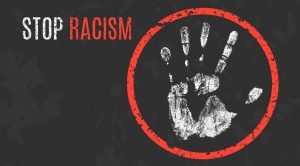(Akiit.com) While we are all familiar with the symbol of Lady Justice that appears inside courthouses and courtrooms all around America, a blindfolded woman holding a set of scales in one hand and a sword in the other. Lady Justice is a sight we are all familiar with.
She is the modern representation of The Greek goddesses Themis and Dike and the Ancient Roman art, Justitia. Lady Justice is the personification of Justice. She represents what the American population expects of the judicial system, a fair administration of the law without favor or prejudice for all. Lady Justice symbolizes objectivity and impartiality, apprehending everyone from behind her blindfold to deliver a verdict that is free of bias.
The scales refer to the process of weighing the evidence, meaning that facts have their own merit.
Lady justice also stands on a book, which represents the law. The law is the same for all.
Yet, in the real world, there is no such thing as a real-life Lady Justice. We, people, are biased, whether we are spectators, jurors, judges, or lawyers. 
Gender bias makes it hard for male victims
Society pre-conditions individuals to think in specific ways. While it’s no excuse for our bias, it can dramatically affect victims who are seeking justice. For instance, did you know that in Western societies, men are more likely to be perceived as perpetrators and women as victims? While physical and domestic violence cases tend to follow this principle, legal experts have also experienced reversed situations in which a woman was the perpetrator or has made a false claim. When it happens, the victim needs to rely on experienced lawyers such as Wilson Law to recover the truth and protect their rights. Unfortunately, for lesser knowledgeable teams, it can be tricky to fight gender bias in courts.
Race bias affects the course of justice
We’d love to talk less about racial discrimination, but, alas, the topic remains as relevant as ever. The media are the first to encourage social bias, painting a black and white world where skin color becomes synonymous with evil. The picture painted by the media vilifies racial minorities, and amplifies what is now identified as the White Privilege. White skin privilege refers to the fact that your skin color can give you a significant advantage in the eyes of the law: It makes you more trustworthy and reputable. Similar to gender bias, in a situation that opposes White and Black, Black people are at risk of becoming a scapegoat without qualified lawyers.
Age bias makes transform your credibility
We tend to associate old age with wisdom. However, when it comes to crime witnesses, people can be gender-biased and give less weight to statements made by seniors. Say you compare how people perceive the report of a 40-something-year-old and an 80-something-year-old. Age bias can encourage you to rate the latter less favorably, leading to prejudice and deliberate decision to reject some facts. In short, being old makes you less trustworthy for no other reason than your age, without considering your abilities, experience, or knowledge.
Bias, unfortunately, seems to be everywhere. The first step to eradicating it from our modern society is to be honest about it. Identifying prejudices and understanding the triggers is a long and painful process. But it seems that the only way forward is within us.
Staff Writer; Doug Brown








Leave a Reply